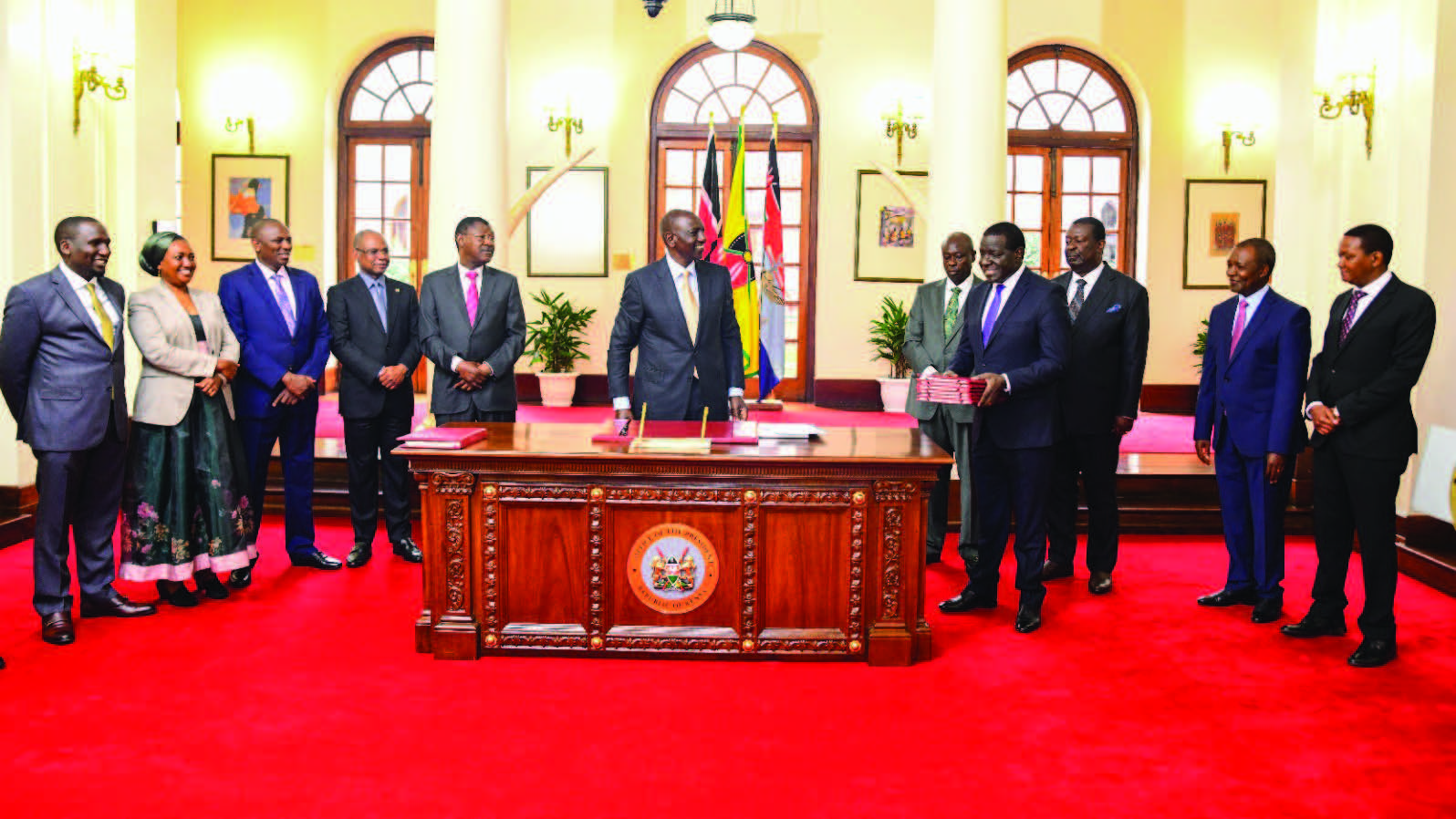
With a Gross Domestic Product(GDP) of US$113.42bn and growing at an average annual rate of 4.8%, Kenya stands as the largest economy in East Africa and one of the fastest-growing economies in Sub-Saharan Africa.[1] Not only is it the regional economic giant, commercial and financial hub, but also acts as the logistical gateway of East Africa. Kenya’s position as a financial hub has facilitated both domestic and regional economic growth. However, despite these advancements, Kenya’s reputation and economic stability face significant challenges, particularly concerning its regulatory compliance in combating financial crimes. The country’s grey listing by the Financial Action Task Force (FATF) in February 2024 due to its anti-money laundering and counter-terrorism financing loopholes poses a threat to its status as a financial hub and could have adverse effects on its economy and international relations. This commentary aims to analyze the implications of Kenya’s grey listing by the FATF and explore potential strategies to safeguard its economic stability and international standing.
In 2010, Kenya faced significant setbacks when it was grey listed by the FATF for the first time due to delayed implementation of the Proceeds of Crime and Anti-Money Laundering Act (POCAMLA)[2]. FATF is an independent inter-governmental body that develops and promotes policies to safeguard the global financial system against money laundering, terrorist financing, and the financing of proliferation of weapons of mass destruction. POCAMLA was crucial for strengthening Kenya’s Anti-Money Laundering and Combating Financing of Terrorism (AML/CFT) regime and bringing it in line with global standards. Although POCAMLA was enacted in December 2009, Kenya encountered challenges in fully implementing and effectively enforcing its provisions within the stipulated timeframe. As a result, the FATF identified Kenya’s legislative shortcomings during an evaluation in 2010 and placed the country on its grey list. This designation triggered increased scrutiny from international financial institutions and highlighted the urgency of regulatory reforms.

In a move to address this, Kenya implemented significant legislative reforms aimed at strengthening its anti-money laundering (AML) and counter-terrorist financing (CTF) framework. These reforms involved the enactment of new laws and the amendment of existing ones to align with the international standards established by the Financial Action Task Force (FATF). Additionally, Kenya improved the enforcement of AML/CFT regulations by enhancing the capabilities of its law enforcement agencies, such as the Financial Reporting Centre (FRC) and the Asset Recovery Agency (ARA), to effectively investigate and prosecute financial crimes. These concerted efforts resulted in Kenya’s removal from the FATF’s grey list in 2014.
Despite efforts to rectify its regulatory shortcomings, Kenya faced another setback on 23 February 2024 when it was once again grey listed by the FATF. This time, the grey listing was attributed to persistent weaknesses in Kenya’s AML/CFT framework, including inadequate enforcement mechanisms, weak regulatory oversight, and vulnerabilities in its financial system. The FATF’s decision to grey list Kenya underscored the ongoing challenges facing the country in combating financial crimes and restoring confidence in its financial system. [3]

In addition, Kenya is yet to make progress around successful investigation and prosecution of money laundering incidences. Such offenses occurred between February 2020 and February 2022, when the US authorities uncovered a money laundering scheme diverting COVID-19 relief funds to Kenya. Approximately US$250 million was illegally transferred through Kenyan financial institutions for luxury purchases. The investigation implicated 47 suspects in embezzling funds from US child nutrition programs in Minnesota, with over US$114 million still unaccounted for at the time of arrest. No criminal prosecution of suspects involved in the US COVID-19 mitigation funds fraud was initiated in Kenya.[4] Another one is the recently dropped case against a financial technology company, Flutter wave, whose 45 accounts were frozen by the High Court of Kenya after a request by the Asset Recovery Agency, some allegedly for credit card fraud. Surprisingly, the ARA again moved to court to withdraw the same case it had submitted. [5]
Supervision of designated non-financial businesses and professions (DNFBPs), such as lawyers, dealers in precious metals, and virtual asset service providers was found lacking. The country also faced challenges in collecting beneficial ownership information and effectively utilizing financial intelligence for investigations, prosecution, and sanctions. [6]
These areas highlight strategic deficiencies in both regulatory frameworks, particularly in emerging areas such as virtual assets, and the inadequate execution of mandates by agencies like the financial intelligence unit. It is worth noting that some of these gaps pertain to the regulation of facilitators such as designated non-financial businesses and professions (DNFBPs), notably lawyers who play a pivotal role in transaction facilitation. Conversely, virtual asset service providers pose a significant threat due to their largely unregulated status. [7]
Grey listing therefore poses significant challenges for Kenya by impeding its access to capital and intensifying scrutiny on financial institutions. Reduced access to capital from international bond and loan markets could lead to higher government borrowing and corporate spreads, while tighter lending conditions may increase the expenses. Financial institutions face heightened scrutiny from foreign banks, potentially limiting their access to certain financial products. This could disrupt the supply chain, as delays in international transactions occur due to heightened due diligence procedures.
Kenya’s greylisting underscores the urgent need for comprehensive reforms in its anti-money laundering and counter-terrorist financing framework, achievable through collaborative efforts among government agencies, civil society, and international partners to restore confidence in its financial institutions. To address these challenges effectively, it is crucial to implement strategic recommendations aimed at enhancing coordination and enforcement mechanisms. The following recommendations could strengthen Kenya’s capacity in combating financial crimes:
In response to Kenya’s greylisting by the Financial Action Task Force (FATF), it is recommended that stakeholders such as the Financial Reporting Centre (FRC), Central Bank of Kenya, Capital Markets Authority, Insurance Regulatory Authority must engage all parties, including the public in the fight against money laundering and terrorism financing. Such engagement could involve awareness campaigns, educational initiatives, and collaboration with community organizations to raise awareness about the risks of financial crimes and empower the public to report suspicious activities.

The role of judiciary in combating corruption and curbing illicit financial flows should be streamlined and enhanced .This entails ensuring financial autonomy and providing ongoing capacity building for judicial officers to understand and prosecute cases related to money laundering and terrorism financing. To achieve this, the Law Society of Kenya was designated as a self-regulatory body, ring fencing advocate client privilege and mechanisms for sharing of information between LSK and FRC. Pursuant to the consent, the relevant provisions for amendment were included in the amendment act which paved way for lawyers to report money laundering suspicion through LSK which took effect from 15 March 2023
Kenya should also prioritize enhancing cooperation and information sharing among its domestic law enforcement agencies and international partners. It is therefore essential to continue actively pursuing support in technical assistance, training programs, financial resources, and intelligence sharing initiatives from various international partners including the European Union (EU), the United Kingdom (UK), and the United States (US).
Finally,efforts to prosecute high-profile cases of money laundering and terrorism financing must be intensified by the Office of the Director of Public Prosecution (ODPP) by fostering collaboration between the Law Society of Kenya and the Financial Reporting Centre.
[1] https://www.centralbank.go.ke/annual-gdp/
[2] Abbasova, A., & Mukhwana, T. (2024). Caught in the Grey List: Kenya’s Struggle with Financial Integrity. Africa, Kenya.
[3] Abbasova, A., & Mukhwana, T. (2024). Caught in the Grey List: Kenya’s Struggle with Financial Integrity. Africa, Kenya.
[4] https://issafrica.org/iss-today/syndicates-launder-stolen-us-covid-19-funds-in-kenya
[5] https://techcabal.com/2024/02/02/kenya-unfreezes-flutterwave-funds/
[6] Masinde, S., & Mwanyumba, R. (2024, March 13). Back at it again: Kenya on the grey list.
[7] Eastern and Southern Africa Anti-Money Laundering Group (ESAAMLG). (2022). Anti-money laundering and counter-terrorist financing measures: Mutual Evaluation Report.
